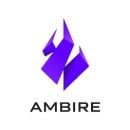Even for experienced crypto enthusiasts, sorting through the rapidly expanding crypto wallet market can be challenging. There are mobile wallets, browser-based wallets and hardware wallets that store your cryptocurrency offline in storage devices. Some give you complete control over your funds and security, others operate more like a bank. The wallet you choose can even dictate the types of cryptocurrency you can store.
The process is a little more complicated than deciding whether you want a billfold or money clip to store your cash. So to help you navigate the crypto wallet market, we’ve highlighted some of the best wallets on the market.
Best Crypto Wallets to Know
- Ambire
- Binance
- BitGo
- Coinbase Wallet
- Exodus
- Ledger
- MetaMask
- Mycelium
- Trezor
- Trust Wallet
Best Crypto Wallets to Know
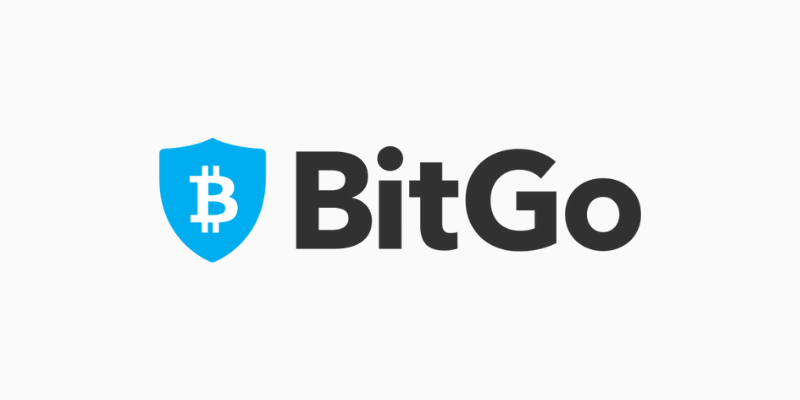
BitGo is a web-based hot wallet best-suited for businesses and institutional investors. The company’s custodial wallet caters institutional investors and requires a $1 million account value. It offers cold storage and hot wallet capabilities, and it supports trading up to 400 different cryptocurrencies while backing user assets with a $250 million policy. Its BitGo Business wallet requires a minimum $1 million monthly transaction volume, but it provides 24-hour customer service and also supports up to 400 coins. Individual users, however, can sign up for BitGo’s Pay As You Go wallet, which is a hot wallet service that only supports seven coins: Bitcoin, Bitcoin Cash, Bitcoin Gold, Litecoin, Zcash, Stellar and Dash. All three wallets provide multi-key security — with a client key and a backup key stored offline — to protect the account and prevent users from being locked out of their wallet.
Highlights:
- Web-based hot wallet.
- BitGo Business offers 24/7 customer service and supports trading up to 400 different cryptocurrencies.
- BitGo Pay As You Go, for individual users, supports seven coins (Bitcoin, Bitcoin Cash, Bitcoin Gold, Litecoin, Zcach, Steller, Dash).
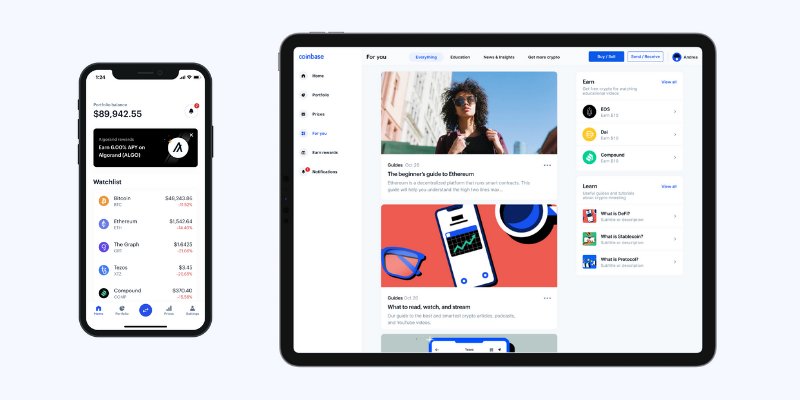
One of the most popular crypto wallets, Coinbase Wallet has been labeled a leader in its industry, according to review website G2. It’s a noncustodial wallet that can be set up either via a browser extension or mobile app and supports more than 500 cryptocurrency tokens. Through the wallet, users can manage the full breadth of their crypto assets. They can swap tokens on the decentralized exchange, grow and manage their NFT collection and join a decentralized autonomous organization, or DAO. All assets stored in Coinbase Wallet are independent from Coinbase’s trading website, but users can easily transfer funds to make transactions. For new users, Coinbase also offers a handy tutorial page to help them set up the wallet and get started navigating the crypto market.
Highlights:
- Non-custodial wallet.
- Accessed through desktop browser extension or mobile app.
- Supports more than 500 cryptocurrency tokens.
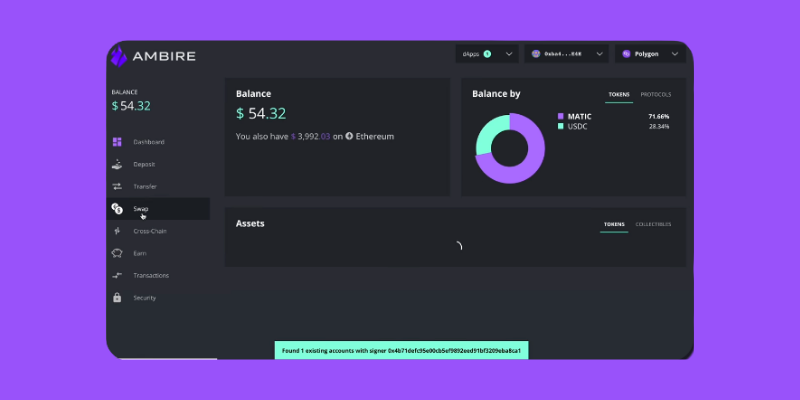
Ambire is a browser-based, non-custodial crypto wallet, so all you need is an email and password to get started buying, selling and investing your crypto. Built on the Ethereum blockchain, it touts itself as a smart wallet. Rather than going through the time-consuming approval process to buy and trade crypto, Ambire generates a blockchain program, or smart contract, that only executes the task once the necessary conditions are met that deem it safe. This allows users to invest in DeFi or trade in cryptocurrency with one click, making it easier for crypto newcomers to get started.
Ambire mainly allows users to hold Ethereum-based coins like Ethereum, Polygon and Avalanche, as well as most major stablecoins. It also allows users to access DeFi networks like Yearn. People looking for extra security can also sync their hardware wallets like Trezor or Ledger to their Ambire account.
Highlights:
- Non-custodial wallet.
- Smart wallet built on Ethereum blockchain.
- Browser based.
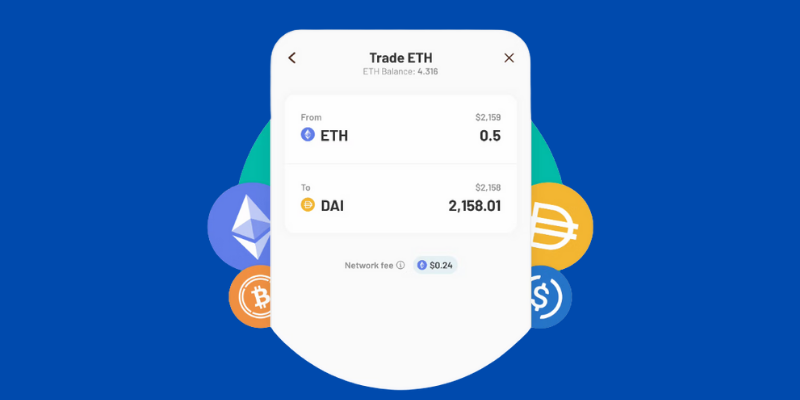
Argent is a non-custodial, mobile-based crypto wallet built on the Ethereum blockchain. Once users download the mobile app, they can use their bank account or credit card to purchase Ethereum-based tokens. Users can also easily trade and invest on DeFi markets like Yearn, Lido and Gro and navigate the Web3 decentralized apps market. Other features include the ability to lock or unlock your account and the ability to recover your account via hardware wallets Trezor and Ledger or trusted contacts rather than a 12-plus word seed phrase.
Hardcore investors with more than $50,000 in their account can also sign up for Argent Vault, which adds extra layers of security to their account. Through Vault, wallet owners can establish a trusted network of users with whom they can trade instantaneously. For anyone else, the program requires multi-factor authentication to trade as a way to prevent any unwanted transactions. As an extra layer of security, all users are able to easily access and transfer their assets to another wallet if the company stops operating.
Highlights:
- Non-custodial wallet.
- Mobile based.
- Built on Ethereum blockchain.
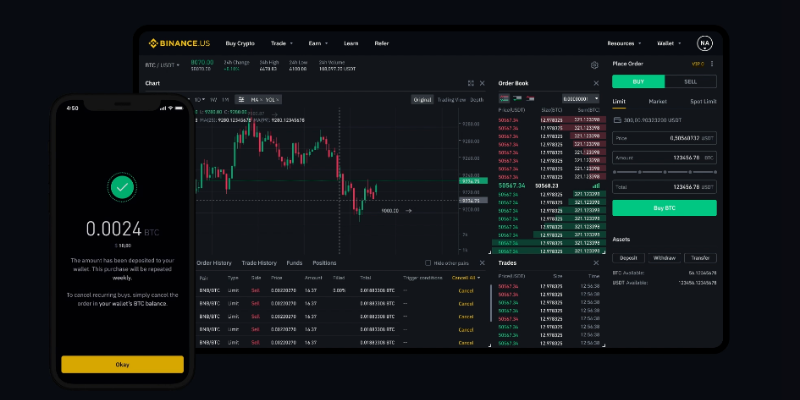
Binance is a custodial wallet that can be accessed via app or browser and allows users to trade in over 600 cryptocurrencies including Bitcoin, Ethereum, Dogecoin and more. The wallet is designed to scale with user needs. First-time users can plug in how much they want to spend on a token, see how much it nets them and then transact with a click. Its user interface also makes it easy for users to see their crypto portfolio and start investing their funds. More experienced users, meanwhile, can tap into its trading interface, which allows them to see real-time market trends and trade history. It also facilitates secure, large-scale transactions or block trades.
It should be noted that Binance does not service users in Hawaii, Idaho, New York, Texas or Vermont at this time due to state regulatory laws around crypto trading.
Highlights:
- Custodial wallet.
- Accessed through app or browser.
- Supports over 600 cryptocurrencies, including Bitcoin, Ethereum and Dogecoin.
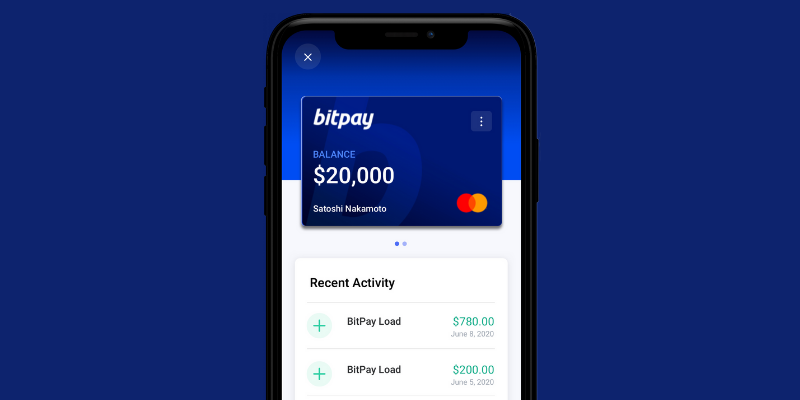
If you’re interested in using your bitcoin or other cryptocurrencies to make purchases, then it’s worth giving BitPay’s wallet a look. As a noncustodial mobile wallet, users have complete control over their funds via their phone. To build up their crypto funds, users can purchase most major coins like Bitcoin, Ethereum, Dogecoin and USD Coin via a debit or credit card. But notably, they can also download a BitPay prepaid Mastercard that allows them to transfer their cryptocurrency into cash to spend anywhere similar to a debit card. Users can also transfer their cryptocurrency into gift cards they can spend at companies like Amazon, Home Depot and Walmart. All told, the wallet aims to make it easier for users to treat their cryptocurrency holdings like a bank account. BitPay also provides services for businesses allowing them to make purchases and receive cryptocurrency as payment.
Highlights:
- Non-custodial wallet.
- Mobile based.
- Allows users to transfer cryptocurrency into cash on a prepaid debit card.
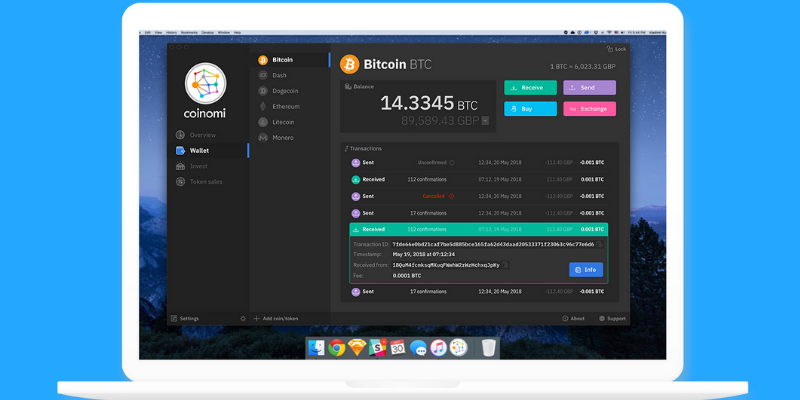
Coinomi provides a mobile and desktop noncustodial wallet that supports 125 blockchains — including Ethereum and Bitcoin — and more than 1,700 tokens. Through its wallet, users can access decentralized apps, browse Web3 offerings and access decentralized exchanges that allow you to trade cryptocurrency with other users. Among its many features, Coinomi allows users to streamline transactions with one-click authorizations, enables cold staking, which involves storing your cryptocurrency offline to gain interest on them and allows you to purchase gift cards with your tokens to make purchases. The wallet also stands out for its security: The company has never been hacked since its launch in 2014, according to its website.
Highlights:
- Non-custodial wallet.
- Accessed through mobile and desktop.
- Supports 125 blockchains and more than 1,700 tokens.
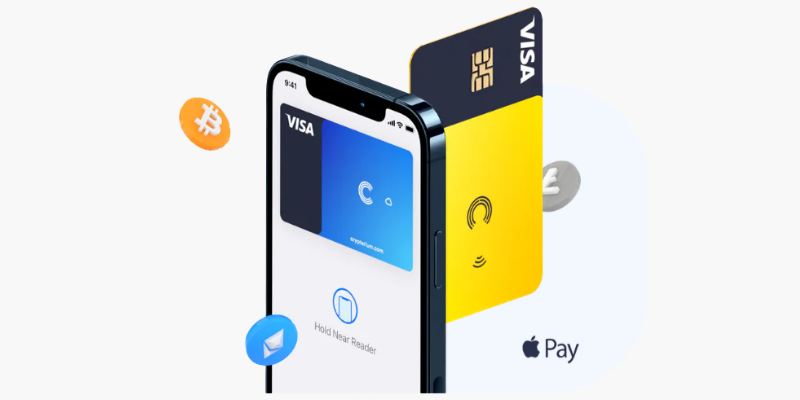
Crypterium describes itself as a bank for cryptocurrency. Developed as a custodial mobile wallet, users can purchase with a debit card most major cryptocurrencies like Bitcoin and Ethereum, put them into a savings account to gain interest, or buy and trade them. They can also open up a Visa debit card that can be loaded with cryptocurrency to make purchases like a standard debit card. It also provides an AI tool that predicts prices for different cryptocurrencies to help users decide which ones to buy and how much they’ll grow over time. User accounts are also insured by BitGo and protected with three-layer security and anti-fraud protocols. In addition to its personal wallet services, Crypterium also provides a wallet for businesses and B2B services.
Highlights:
- Custodial wallet.
- Mobile based.
- Lets users open a debit card loaded with cryptocurrency funds.
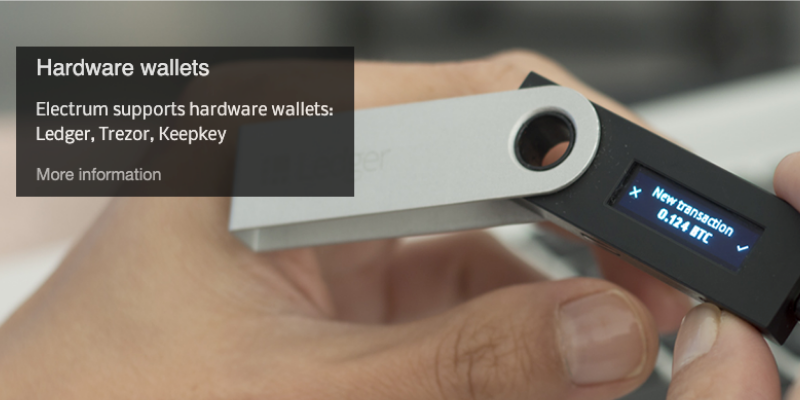
Electrum is a noncustodial crypto wallet that can be downloaded via a mobile or desktop application. It’s a no-frills crypto wallet that only supports Bitcoin, but it prioritizes speed and security. Users can establish multi-signature requests to split permission to spend their Bitcoins across other wallets, and its simple payment verification system enables it to quickly verify all transactions. Electrum’s servers also index the Bitcoin blockchain, which allows it to provide faster transactions, according to the company. For those who lose access to their accounts, Electrum also allows users to recover their funds with a secret phrase that operates like a password.
Highlights:
- Non-custodial wallet.
- Available via mobile or desktop applications.
- Only supports Bitcoin.

If you’re looking for a beginner-friendly crypto wallet, Exodus may have you covered. Offering both a desktop app and a mobile app, Exodus is a noncustodial wallet that allows users to start buying and trading in more than 180 cryptocurrencies. The app offers a simple interface that allows users to see their portfolios at a glance, and it turns exchanging cryptocurrencies into a one-click step, hiding the complex details for users who don’t want it. User comments on G2 also tout the app’s ease and simplicity. For those looking for extra security, Exodus can also sync with Trezor hardware wallets. It also hosts a variety of decentralized apps, like the investment app Compound Finance and sports betting app SportsX.
Highlights:
- Non-custodial wallet.
- Accessed through desktop or mobile apps.
- Beginner-friendly interface.
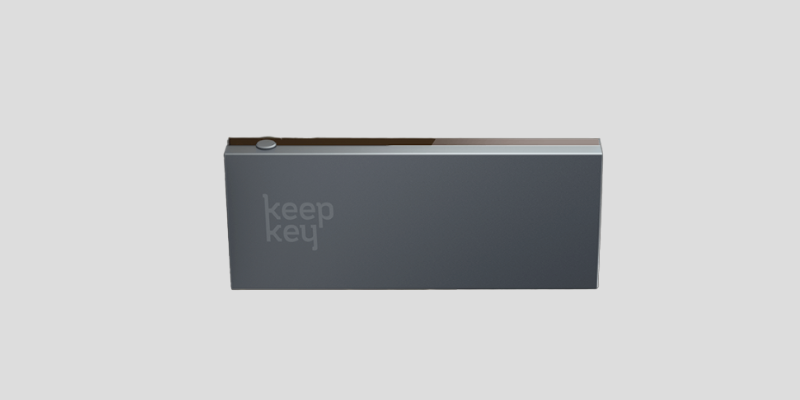
Described as the premier wallet on the ShapeShift platform, KeepKey is a hardware crypto wallet that can be used to send, store and receive 40-plus cryptocurrencies, including Bitcoin, Ethereum and Litecoin. The sleek, gray device prioritizes security, allowing users to manage their private key offline so that it can’t be hacked and requires every digital asset sent or received to be manually approved through a click of a button on the device itself. KeepKey also syncs with the crypto platform ShapeShift, which enables users to quickly exchange coins in their wallet on the platform. The wallet also generates a 12-word security phrase that allows users to recover their funds if the device is lost or broken.
Highlights:
- Hardware wallet.
- Known for its security.
- Supports several dozen cryptocurrencies, including Bitcoin, Ethereum and Litecoin.

Another hardware wallet, Ledger allows users to store and manage more than 5,500 digital assets, including Bitcoin, Ethereum, Litecoin and Dai, along with NFTs. Ledger offers two devices: the cheaper, beginner-friendly Nano S Plus for $79 and the more high-powered Nano X for $149. The Nano X offers more capacity and allows users to manage their funds on their phone via a bluetooth connection, whereas Nano S Plus requires an account with Web3 partner Ledger Live to manage the funds. Still, both provide a secure offline storage system for your cryptocurrency and allow you to connect with other DeFi apps to grow your funds.
Highlights:
- Hardware wallet.
- Users can store and manage more than 5,500 digital assets.
- Multiple Ledger models available, based on user budgets and needs.
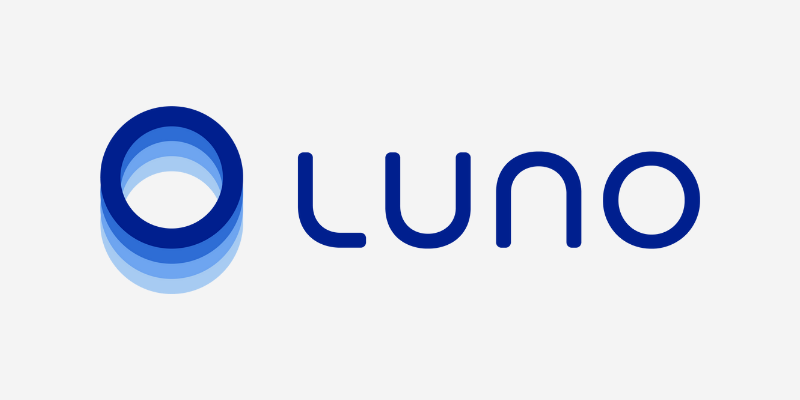
Luno is another beginner-friendly mobile crypto wallet. It’s a custodial service that enables users to buy, sell and invest Bitcoin and Ethereum. The app provides users with friendly explainers on what they can do with their cryptocurrency and how to manage their funds, along with simple prompts to start a transaction. This includes asking users how much Bitcoin they want to buy and then seamlessly translating the amount from dollars to Bitcoin. It also allows users to track the growth of their cryptocurrency over time and shows them the profit or loss of each investment. The company also follows the same anti-money laundering and know-your-customer compliance regulations that banks must follow.
Highlights:
- Custodial wallet.
- Mobile based.
- Beginner-friendly; supports Bitcoin and Ethereum.

Built on the Ethereum blockchain, MetaMask is a noncustodial crypto wallet that can be managed on either a mobile app or browser extension. In addition to allowing users to buy, sell and trade Ethereum-based tokens, the wallet also enables users to access a network of crypto games and decentralized apps like Maker, OpenSea and Compound. It is a hot wallet, but it encrypts all user information and provides you with a security phrase that ensures only you have access to it if you lose their account.
Highlights:
- Non-custodial wallet.
- Managed via mobile app or browser extension.
- Built on Ethereum blockchain.

Mycelium is a noncustodial Bitcoin wallet geared more toward providing privacy and security features that more experienced cryptocurrency traders will appreciate. Mycelium doesn’t require an ID to sign up: You can download the wallet for free from its website and all account information is stored on your local device offline, meaning it doesn’t collect any personal data or have control over your account. It also offers both cold storage and paper wallets, along with integration with hardware wallets like Ledger and Trezor.
Users, meanwhile, can gain access to an advanced transaction history to track all their finances. While the app shares standard transaction fees to push Bitcoin transactions through, it ultimately requires the user to identify the proper fees. From a security standpoint, the app isn’t dependent on a development team to operate. This means if anything happens to the company, users can still download the code and access their wallet. Users can also create a backup account to ensure access to their funds. If you lose both your phone with the app downloaded and your backup, however, then you’re out of funds.
Highlights:
- Non-custodial wallet.
- Prioritizes privacy and security features.
- Supports Bitcoin.
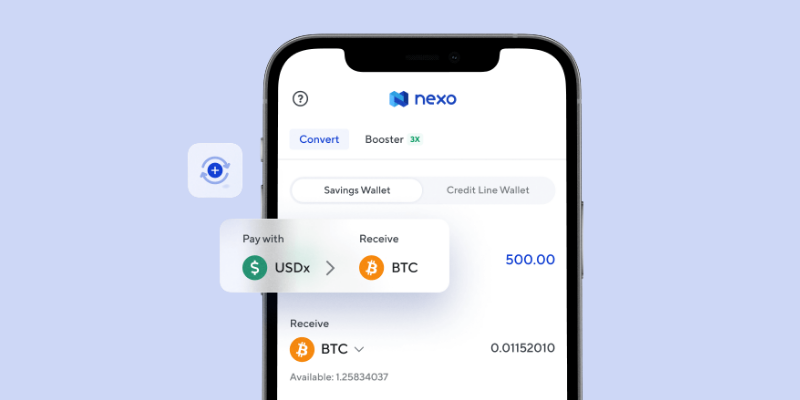
Nexo is a custodial, browser-based crypto wallet that operates similar to a bank. Free to sign up, users buy crypto with their bank account and then start selling or investing them. The app supports up to 40 cryptocurrencies, including Bitcoin, Ethereum, Apecoin and more. In an effort to address some of the security concerns that come with custodial wallets, Nexo insures up to $375 million in custodial assets, conducts real-time reserves audits and protects user funds in military-grade vaults. It also provides users with withdrawal confirmation and log-in alerts.
Highlights:
- Custodial wallet.
- Browser based.
- Supports 40 cryptocurrencies, including Bitcoin and Ethereum.
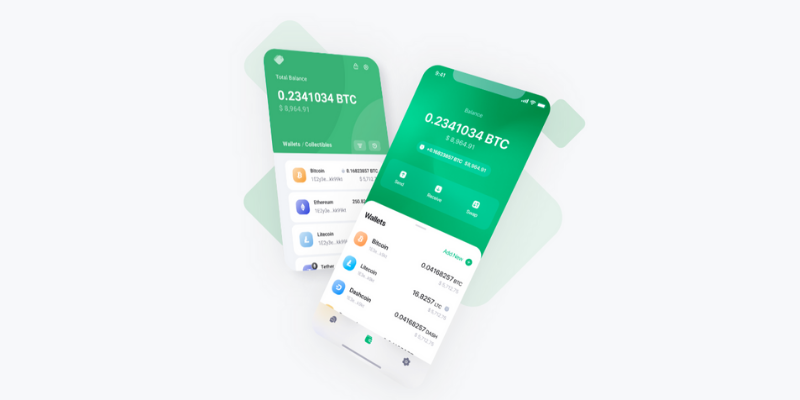
Another noncustodial, browser and mobile-based wallet, SimpleHold offers a straightforward crypto wallet experience for users. Once the app is downloaded, user backup accounts are encrypted and stored on their device so that only they have access to them. They can then purchase and manage up to 50 different major cryptocurrencies as well as NFTs. The wallet also streamlines sending crypto, requiring the user to enter the address they want to send it to and the amount all from the app. While SimpleHold doesn’t currently allow users to exchange cryptocurrencies, it will soon be releasing a new feature called SimpleSwap to provide that ability. SimpleHold also supports connectivity to hardware wallets Trezor and Ledger.
Highlights:
- Non-custodial wallet.
- Browser and mobile based.
- Allows users to manage most major cryptocurrencies and NFTs.
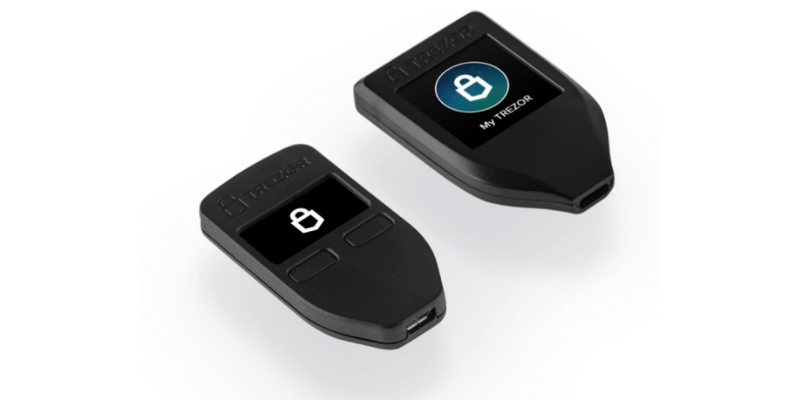
Trezor is a hardware wallet that makes it easy for users to store and protect their cryptocurrency offline. The wallet supports more than 1,000 cryptocurrencies and connects to a desktop application where the user can manage their funds. Users can choose between two different models: the base version Trezor One or the premium version Trezor Model T. Trezor One users must access it on a secure device, whereas the Model T edition has a touchscreen where users can input pins, passwords and enact device recovery. Both devices come with security features like two-factor authentication and public and private key encryption to protect user accounts. Trezor wallets can also sync with a wide variety of mobile and desktop crypto wallets, including Ambire, Argent, SimpleHold and more.
Highlights:
- Hardware wallet.
- Supports more than 1,000 cryptocurrencies.
- Syncs with several mobile and desktop crypto wallets.
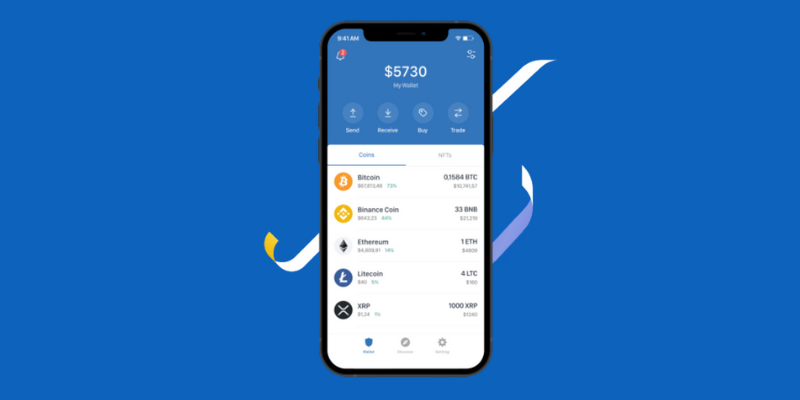
Trust Wallet is a mobile-based noncustodial wallet that’s notable for its support for more than 50 cryptocurrencies and more than a million blockchain assets. This includes the standard Bitcoin and Ethereum coins, but also Polygon, Dogecoin, Avalanche and more, as well as stablecoins and NFTs. It also serves as a decentralized application marketplace, allowing users to download vetted blockchain apps developed and optimized for Trust Wallet making it a useful wallet for those interested in playing the latest cryptogames or exploring DeFi apps. Users can also invest their crypto in the wallet to earn interest and exchange coins for others on the app.
Highlights:
- Non-custodial wallet.
- Mobile based.
- Supports most major cryptocurrencies, including Bitcoin, Ethereum and Dogecoin — and NFTs.

ZenGo is another mobile-based, noncustodial crypto wallet. It supports 12 cryptocurrencies, like SHIBA INU, Dogecoin, USD Coin in addition to Bitcoin and Ethereum, and it serves as a Web3 browser, allowing users to explore decentralized applications. But the app stands out for its ease of use. Its user interface makes sending and receiving cryptocurrency akin to sending funds on Venmo, allowing the user to scan a person’s QR code ID, enter the amount they want to send and then click transfer.
ZenGo also makes it easy for users to recover their account if they delete the app or lose their phone. Rather than requiring users to save or memorize long recovery phrases, ZenGo allows users to recover their accounts via a 3D biometric face scan. As a noncustodial wallet, users are also able to maintain their account even if something happens to the company.
Highlights:
- Non-custodial wallet.
- Mobile based.
- Supports a dozen crypto currencies and functions as a Web3 browser.



